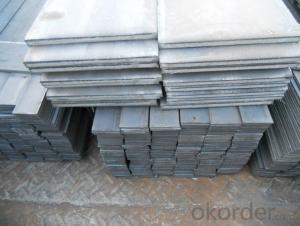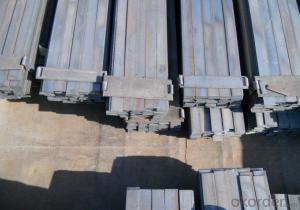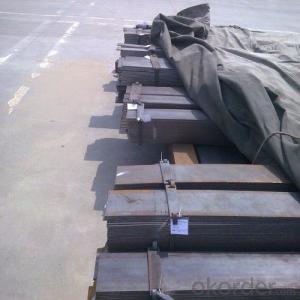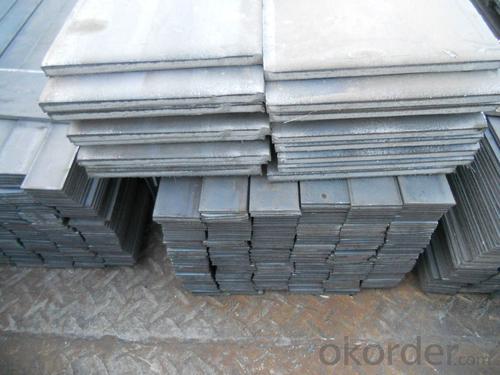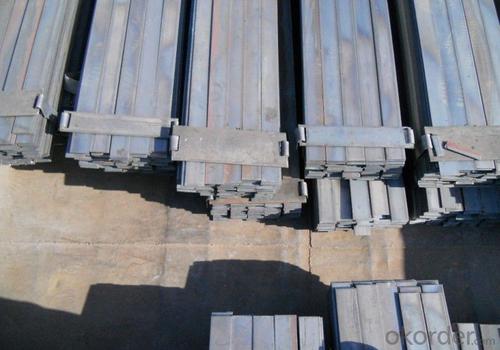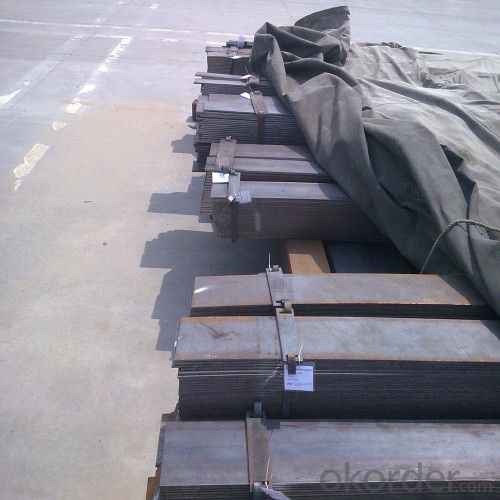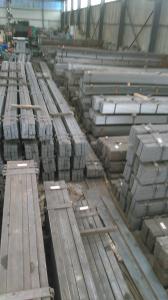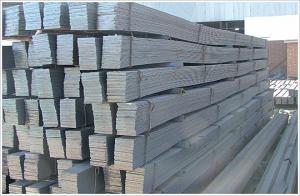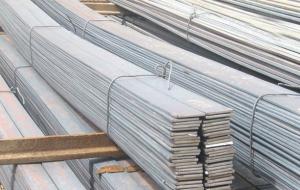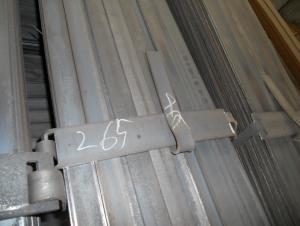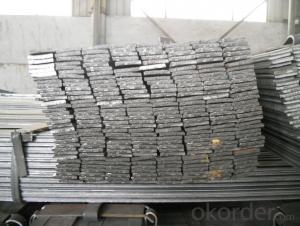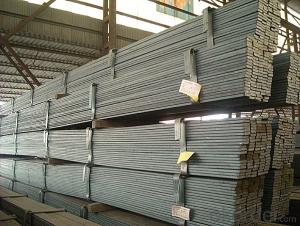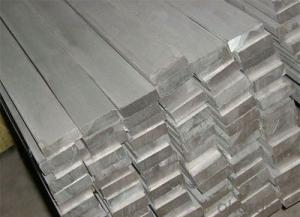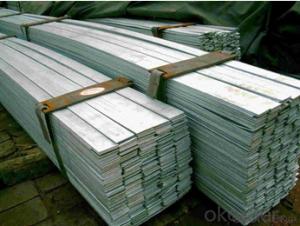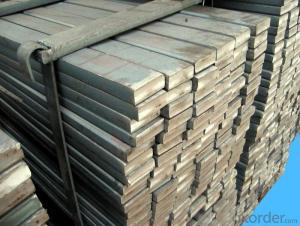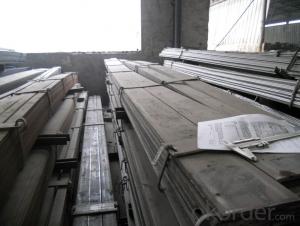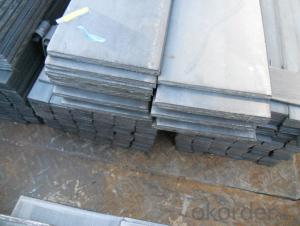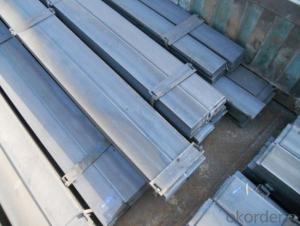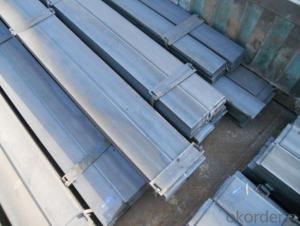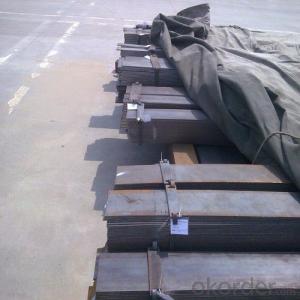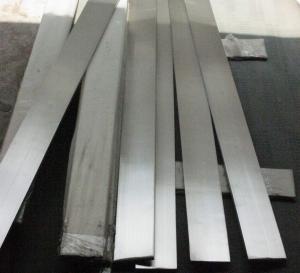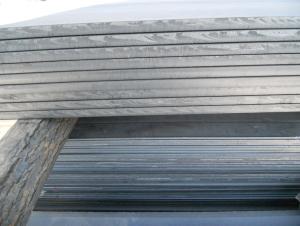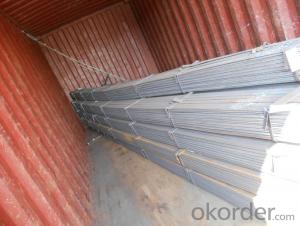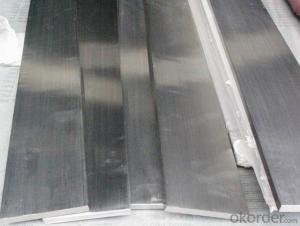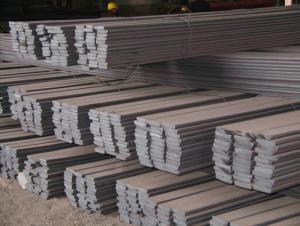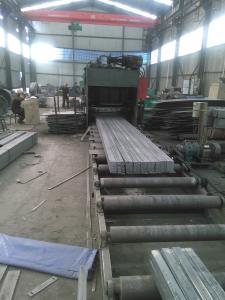Hot Rolled Flat Steel Bar in Grade Q235B
- Loading Port:
- Tianjin
- Payment Terms:
- TT OR LC
- Min Order Qty:
- 25 m.t.
- Supply Capability:
- 10000 m.t./month
OKorder Service Pledge
OKorder Financial Service
You Might Also Like
OKorder is offering high quality Flat Bar at great prices with worldwide shipping. Our supplier is a world-class manufacturer of steel, with our products utilized the world over. OKorder annually supplies products to European, North American and Asian markets. We provide quotations within 24 hours of receiving an inquiry and guarantee competitive prices.
Product Applications:
Flat Bars are ideal for structural applications and are widely used in the construction of buildings and bridges, and the manufacturing, petrochemical, and transportation industries.
Product Advantages:
OKorder's Flat Bars are durable, strong, and resist corrosion.
Main Product Features:
· Premium quality
· Prompt delivery & seaworthy packing (30 days after receiving deposit)
· Corrosion resistance
· Can be recycled and reused
· Mill test certification
· Professional Service
· Competitive pricing
Product Specifications:
Manufacture: Hot Rolled
Grade: Q195 – 235
Certificates: ISO, SGS, BV, CIQ
Length: 6m – 12m, as per customer request
Packaging: Export packing, nude packing, bundled
Chemical composition of Q235
Alloy No | Grade | Element(%) | ||||
C
| Mn
| S
| P
| Si
| ||
Q235
|
B
|
0.12—0.20 |
0.3—0.7 |
≤0.045 |
≤0.045
|
≤0.3
|
Physical properties of Q235
Alloy No | Grade | Yielding strength point(Mpa) | Tensile strength (Mpa) | Elongation after fracture(%) | ||||||
Thickness (mm) | Thickness (mm) | |||||||||
≤16 | >16--40 | >40--60 | >60--100 | ≤16 | >16--40 | >40--60 | >60--100 | |||
≥ | ≥ | |||||||||
Q235 |
B |
235 |
225 |
215 |
205 |
375--500 |
26 |
25 |
24 |
23 |
FAQ:
Q1: Why buy Materials & Equipment from OKorder.com?
A1: All products offered by OKorder.com are carefully selected from China's most reliable manufacturing enterprises. Through its ISO certifications, OKorder.com adheres to the highest standards and a commitment to supply chain safety and customer satisfaction.
Q2: How do you guarantee the quality of our products?
A2: We have established an advanced quality management system which conducts strict quality tests at every step, from raw materials to the final product. At the same time, we provide extensive follow-up service assurances as required.
Q3: The prices are invoicing on theoritical weight or on actual weight?
A3: We can do it in both manners, according to the customers' request.
Images:
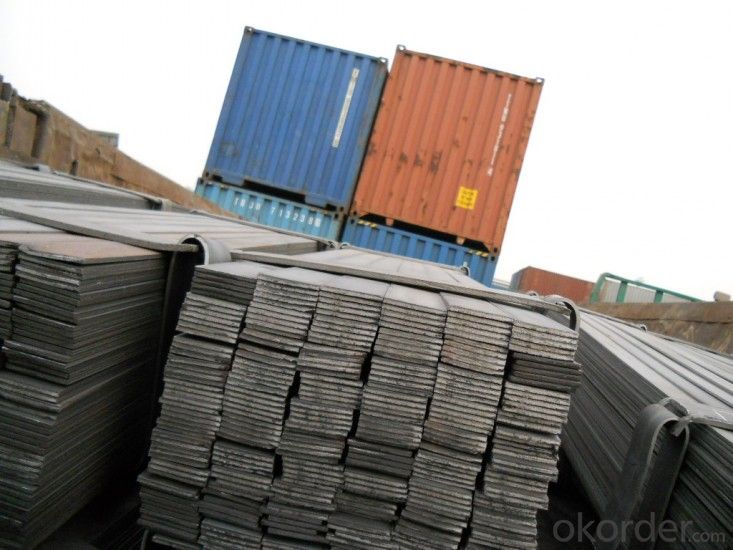
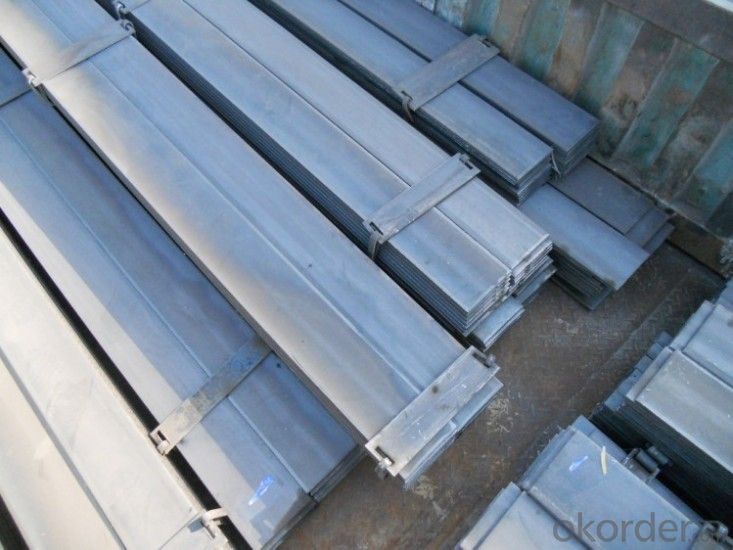
- Q: Can steel flat bars be polished or buffed?
- Indeed, it is possible to polish or buff steel flat bars. Polishing or buffing entails utilizing abrasive materials to eliminate any flaws or marks present on the steel's surface. This technique aids in augmenting the aesthetic appeal of the steel flat bars, bestowing upon them a sleek and glossy appearance. Moreover, polishing or buffing also contributes to enhancing the steel's resistance against corrosion by eradicating any impurities or oxidation on its surface.
- Q: What are the different methods of surface texturing for steel flat bars?
- Steel flat bars can be textured using various methods, each with its own benefits and applications. These methods allow for the creation of different textures and patterns on the bars, enhancing their appearance, grip, or functionality. Common techniques for surface texturing of steel flat bars include: 1. Shot blasting: By propelling small metal or abrasive particles onto the bars at high speeds, this method removes scale, mill scale, or rust, resulting in a clean and rough finish. 2. Sanding or grinding: Using abrasive tools like sandpaper or grinding wheels, material is manually removed from the bars' surface, creating textured finishes with patterns or grooves. 3. Knurling: This process involves rolling or pressing ridges or grooves onto the bars' surface, improving grip and preventing slipping, making it suitable for non-slip applications. 4. Acid etching: Chemical solutions selectively remove a thin layer of the steel's surface, creating precise and intricate textured patterns, including designs or logos. 5. Roller embossing: Bars are passed through rollers with engraved patterns, pressing the pattern onto the surface and creating various designs and textures for aesthetic appeal. 6. Laser texturing: Laser technology removes material from the surface, achieving precise and intricate patterns with high accuracy and repeatability. This method is ideal for decorative purposes or specialized applications that require precise texture control. Each method has its advantages and should be chosen based on the desired texture, application requirements, and cost-effectiveness. Selection depends on factors like intended use, desired appearance, functionality, and budget constraints.
- Q: Are steel flat bars suitable for high-traffic areas?
- Yes, steel flat bars are suitable for high-traffic areas. Due to their durability and strength, steel flat bars can withstand heavy foot traffic and the constant movement of people without getting easily damaged or worn out. They are resistant to impact and can handle the weight and pressure exerted by individuals walking or running on them. Additionally, steel flat bars are commonly used in industrial and commercial settings precisely because they are designed to withstand high traffic and heavy loads. Their sturdy construction and ability to handle constant use make them an ideal choice for areas such as walkways, staircases, platforms, and other high-traffic zones.
- Q: Are steel flat bars available in different widths?
- Yes, steel flat bars are available in different widths.
- Q: What are the different types of steel alloys used for flat bars?
- There are several types of steel alloys commonly used for flat bars, including carbon steel, stainless steel, alloy steel, and tool steel. Carbon steel is the most widely used and is known for its strength and durability. Stainless steel is highly corrosion-resistant and often used in environments with high moisture or chemical exposure. Alloy steel contains additional elements such as manganese, nickel, or chromium to enhance strength and toughness. Tool steel is specifically designed for use in cutting tools and has high hardness and wear resistance.
- Q: Can steel flat bars be used for machinery or equipment?
- Yes, steel flat bars can be used for machinery or equipment. Steel flat bars provide strength, durability, and versatility, making them suitable for various applications in the manufacturing and industrial sectors. They can be used as structural components, supports, brackets, or for creating custom parts and components in machinery and equipment.
- Q: Are steel flat bars prone to rusting?
- Yes, steel flat bars are prone to rusting. Steel is primarily made of iron, which is highly susceptible to rust when exposed to moisture and oxygen over time. Rust is the result of a chemical reaction called oxidation, where iron combines with oxygen to form iron oxide. This process weakens the steel's structural integrity and can lead to deterioration and eventual failure if not addressed. To prevent or minimize rusting, steel flat bars are often coated with protective finishes such as paint, galvanization, or powder coating. Regular maintenance and proper storage, such as keeping the steel dry and away from moisture, can also help prevent rusting.
- Q: Are steel flat bars available in custom shapes?
- Indeed, one can procure steel flat bars in customized shapes. Although standard steel flat bars usually possess a rectangular form, they can undergo customization and fabrication to assume diverse shapes tailored to particular needs. This customization procedure entails cutting, bending, and shaping the steel bars in accordance with the desired design or specifications. These customized shapes can vary from basic angles or curves to intricate forms, thus granting enhanced versatility and adaptability across various applications and industries.
- Q: Can steel flat bars be used in the manufacturing of machinery components?
- Yes, steel flat bars can be used in the manufacturing of machinery components. Steel flat bars are versatile and can be easily shaped, cut, and welded to meet the specific requirements of machinery components. They provide strength and durability, making them suitable for various applications in the manufacturing industry.
- Q: Are steel flat bars resistant to chemical corrosion?
- Yes, steel flat bars are generally resistant to chemical corrosion. Steel is inherently a strong and durable material, and its resistance to corrosion can be further enhanced by various methods such as coating or galvanization. However, the level of resistance can vary depending on the specific type of steel used and the type of chemical it is exposed to. Certain chemicals, particularly highly corrosive ones like acids or alkalis, can still cause corrosion to steel flat bars over time. Therefore, it is important to consider the compatibility of the steel with the specific chemicals it will be exposed to in order to ensure long-term durability and performance.
Send your message to us
Hot Rolled Flat Steel Bar in Grade Q235B
- Loading Port:
- Tianjin
- Payment Terms:
- TT OR LC
- Min Order Qty:
- 25 m.t.
- Supply Capability:
- 10000 m.t./month
OKorder Service Pledge
OKorder Financial Service
Similar products
Hot products
Hot Searches
Related keywords
